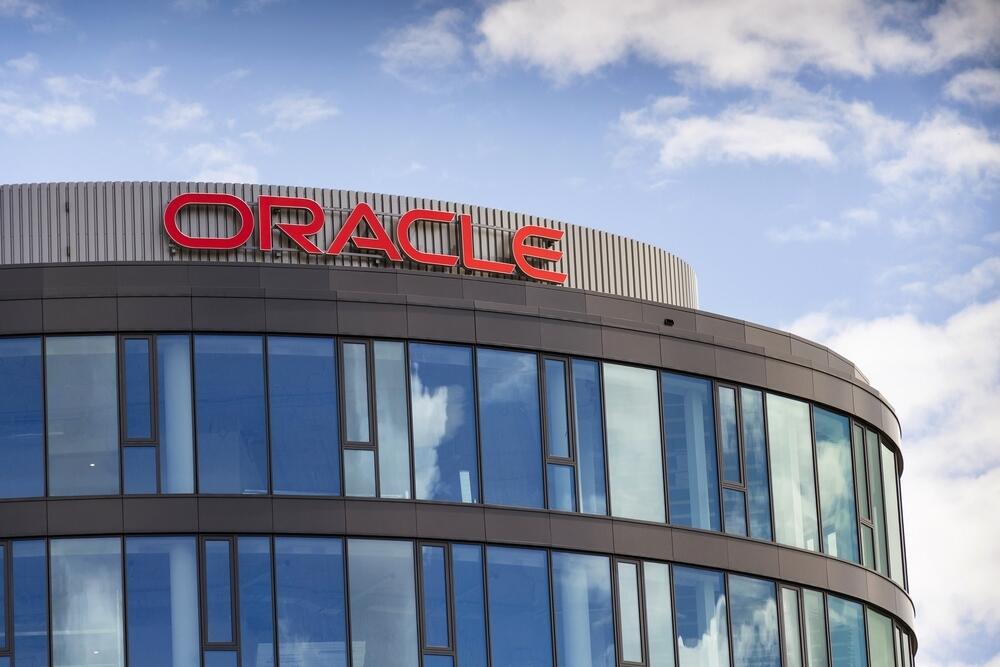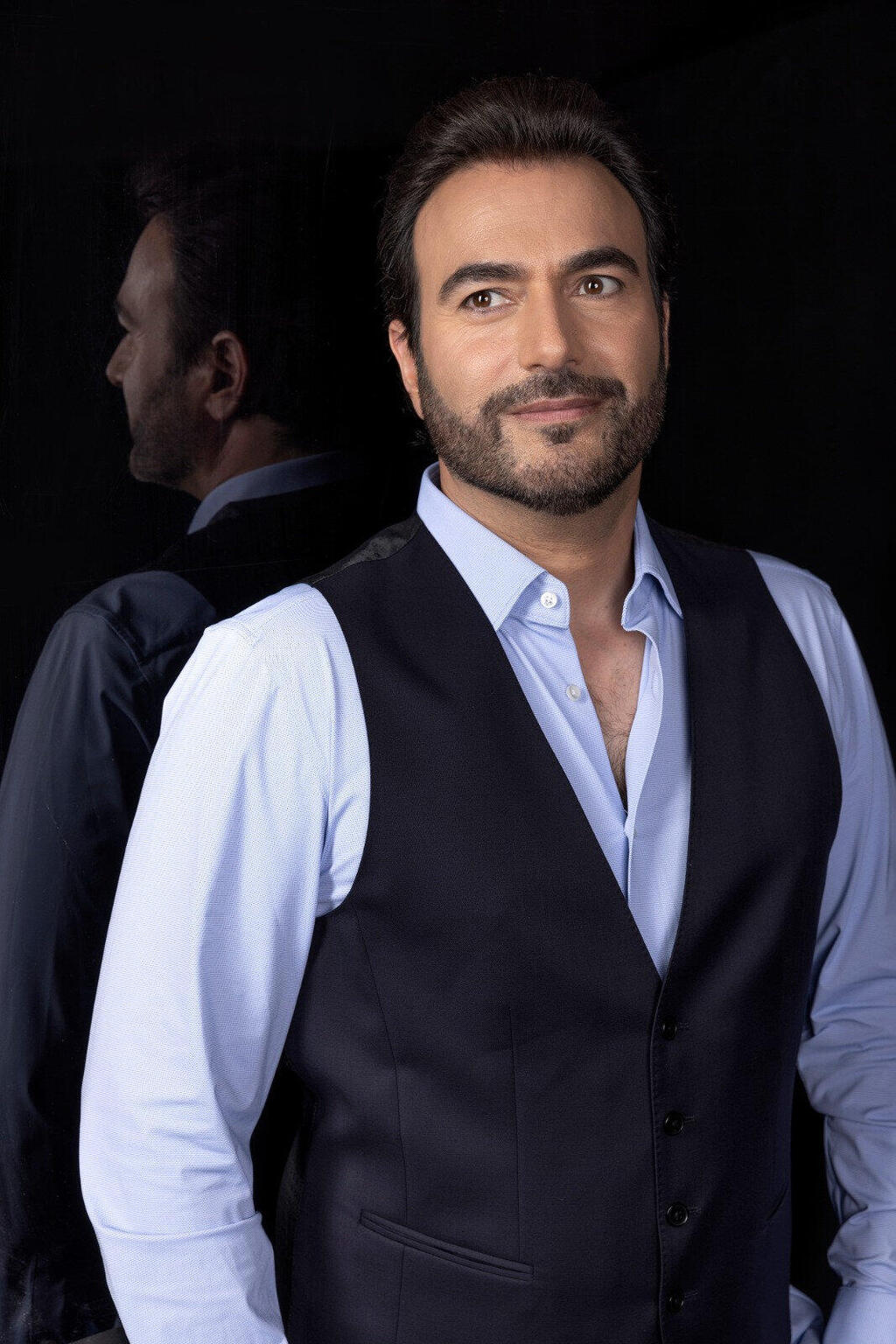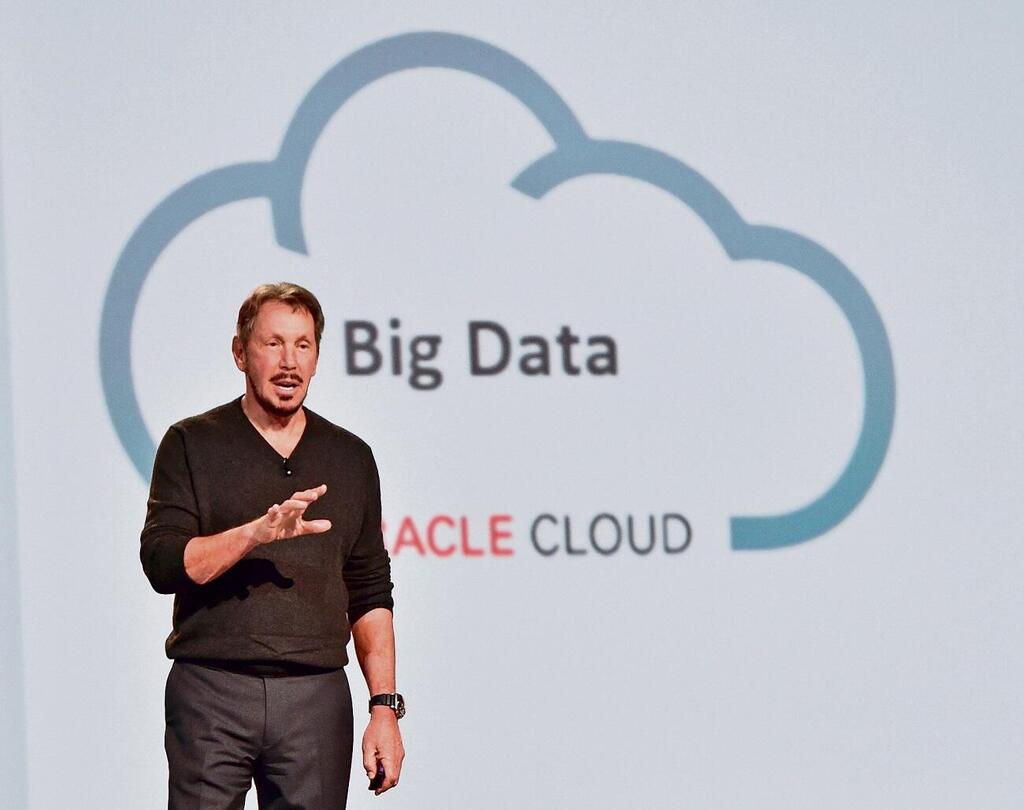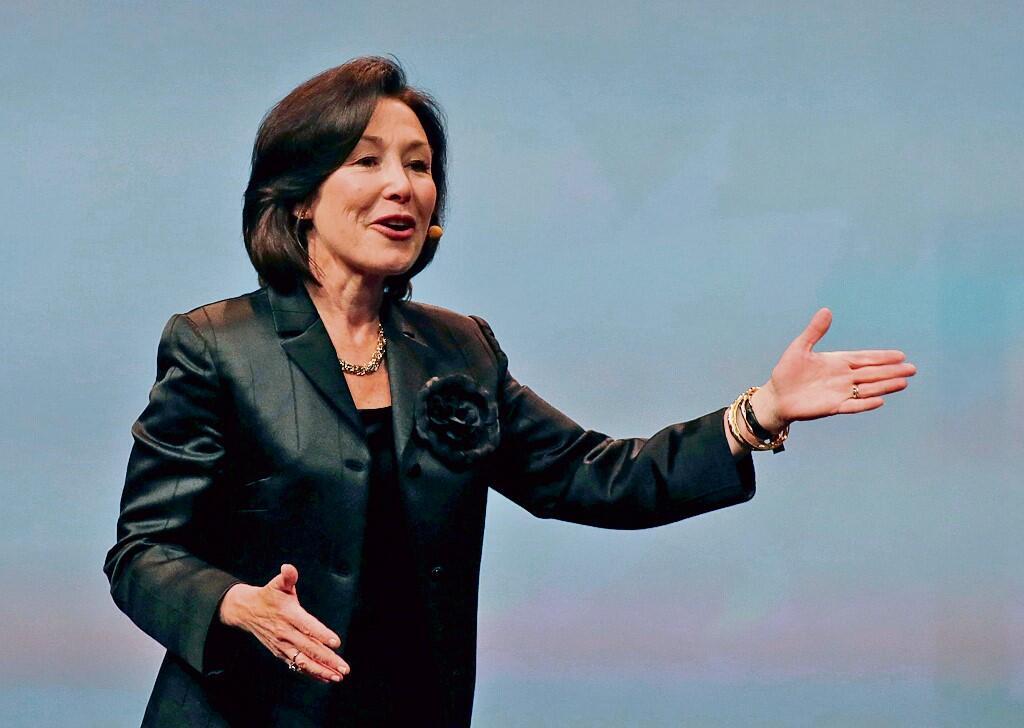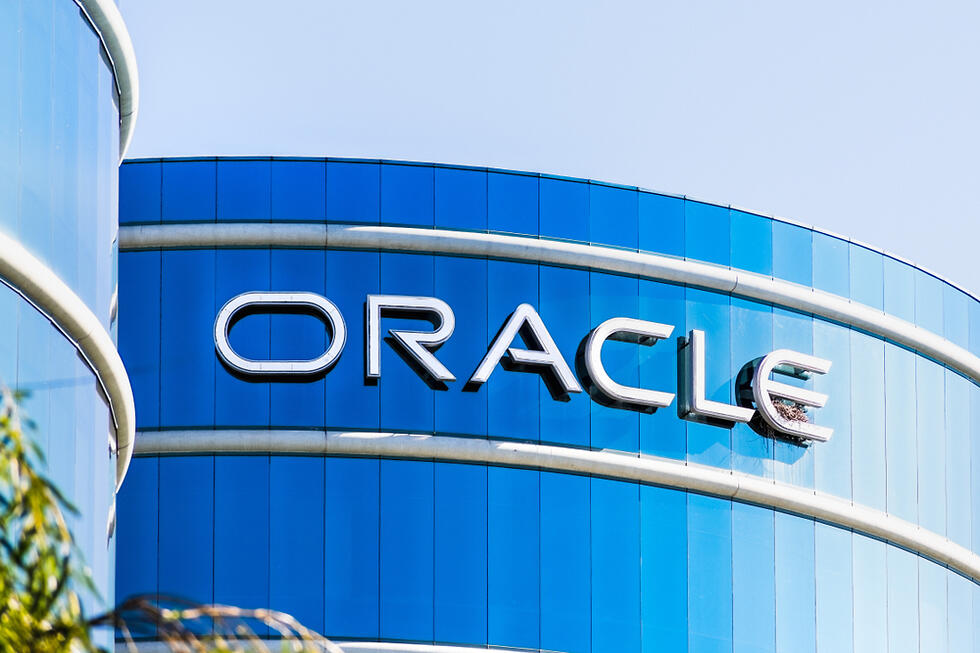Getting your Trinity Audio player ready...
"I was born in Israel, raised mainly in the U.S., and moved back to Israel two years ago to lead Oracle Israel," begins Eran Feigenbaum, a familiar name among hi-tech executives in the U.S., as he provides me with personal background to help establish context for the company's unwavering commitment to Israel and ultimately his decision to return to Israel and take the helm as regional director at Oracle.
Read more:
"In my case, moving to lead Oracle Israel was a no-brainer, a decision rooted in both personal and professional dimensions having been born in Israel and primarily raised in the U.S. My journey with Oracle spans almost five years, during which I served as the chief security officer for the cloud. I collaborated closely with [CTO] Larry [Ellison] and [CEO] Safra [Catz], gaining an eye-opening insight into their unwavering support for Israel long before this war began.”
It was this perspective that shaped Eran’s decision to take on the regional director role in Israel.
“I couldn't fathom a global company offering more support to Israel than Oracle. It's an incredible opportunity to lead the Israeli branch with the backing of a global powerhouse. Oracle's leadership, including the fact that Larry himself has an Israeli origin, has consistently demonstrated unequivocal support for Israel. So much so, that employees not aligning with support for Israel may find Oracle isn't the right fit.”
Oracle's immediate response during recent events showcased that committed support. Immediately in the aftermath of the October 7 atrocities, Oracle publicly declared support for Israel, swiftly opened a charitable fundraising campaign which ultimately raised over $3 million and counting. This wasn't just a financial gesture; it was a tangible demonstration of solidarity. As Eran puts it “My dual identity has been instrumental in navigating these situations, reinforcing Oracle's strong position in times of crisis."
Eran painted a vivid picture of the interconnectedness in Israel. Using the analogy of "six degrees of separation," Eran painted a vivid picture of the interconnectedness in Israel due to the nature of its size and population explaining of each member of his workforce and local clients, "If they weren't directly impacted, they know somebody."
He recounts the harsh reality of employees attending funerals and the ripple effect of the atrocities, emphasizing the emotional toll on Oracle's extended network.
"While I'm very lucky to say that all of our direct employees are accounted for and safe, they all have extended families, friends that are unfortunately no longer with us, or missing."
"Every employee that knew me or that didn't know me... immediately reached out, asking how can we help? How can we get involved?" This sentiment was not merely lip service but translated into tangible actions, with Oracle prioritizing the well-being of its employees. These include those who have been called into reserve duty. "About 15% of our employees have been called for active duty... some obviously are in combat positions. Some are technology support positions."
"We had employees that we had to relocate, employees not in comfortable situations and many cases which required additional financial support for our employees' wellbeing."
I wanted to learn about the other work that Oracle has been gaining media coverage for, so I asked about the employee incentive schemes.
“We initiated various initiatives, such as the brother-in-arms program, where our teams actively utilized AI technologies to assist in locating missing people and soldiers. It's a bit awkward for me to discuss, as our actions were not driven by PR motives. We operated discreetly, under the radar, with no desire for monetary gain. It is true that we have provided financial support to our employees.”
I learned of other examples of Oracle’s support for Israel in the way that they have leveraged some of their technologies, to implement new and quick innovative solutions. One such example is how Oracle's underground data center in Israel has been ensuring the continued operation of critical services during times of threats, like bombings and sirens. They do this in close partnership with the Defense Ministry.
“Our actions were not about seeking credit or PR attention. I personally believe we possess some of the finest technologies, and our efforts were grounded in a genuine desire to contribute positively to Israel's well-being. When discussing these initiatives, my focus is not on promoting Oracle but on amplifying support for Israel. It's about standing in solidarity and ensuring that our actions align with the values we uphold, rather than seeking external acknowledgment."
I ask Eran if Oracle has a long-term strategy to help Israel maintain operations but also contribute to securing a strong economic forecast for the country.
"As we look towards the long-term recovery for Israel, our commitment extends to various levels—our individual employees, our customers, and local organizations. Engaging in continuous conversations with our customers, I strive to understand their evolving needs. Whether it's adapting to different terms, integrating new technologies, or providing assistance due to a sudden lack of available personnel, we're committed to finding solutions.”
“Obviously, being a global company with a vast network of talent—developers in the US, India, the UK, and AMEA—we leverage this advantage to address specific challenges.. It's not just about meeting business needs; it's about fostering collaboration and support during these challenging times.”
Eran continued, “Our proactive approach extends beyond the typical business transactions. We're here to assist customers who want to continue, move forward, and accelerate their business. Financial assistance is available for those in need, but our support goes beyond monetary measures. We stand with our customers in solidarity, providing the multifaceted support they require for a resilient recovery."
I was starting to get the impression of a fully operational war room rather than what you would be expected to think of when imagining Israel’s HQ of one of the largest tech companies in the world with over 180,000 employees.
“Every day, we convene crisis calls with 35 individuals from various teams across the globe, all expressing the same sentiment—'How can I help?' It's heartening to witness the commitment of our global workforce to support Israel in every possible way. Whether it's repurposing used laptops originally meant for recycling to provide essential tools for displaced children or coordinating efforts in different parts of the world, the response has been overwhelming.”
Eran is seeking no accolades for the remarkable job this team at Oracle has been doing. I couldn’t help but sit in awe as I absorbed the sheer scale of what they have been up to since Oct 8th. When I quipped that I am sure his days these days look nothing like he would have imagined when taking on the Oracle job just a couple of years ago, he replied in his characteristically passionate and direct manner:“
It's not about seeking publicity; rather, it's about genuine, impactful assistance. Leading an organization through these unexpected challenges has been both refreshing and challenging. While I would have preferred to continue with our planned operations in October, the collective dedication of our teams worldwide to stand by Israel has been truly commendable."
I was interested to get his views about the macro impact on Israel’s economy and if he sees Oracle as a blueprint for other large companies to adopt their hands-on support strategy.
“It feels like a personal responsibility, given my identity as an Israeli citizen, to act as an ambassador and guide these companies, providing insights from someone on the ground with a nuanced understanding of both sides. I have a valuable network of business, technology, and cybersecurity leaders who have reached out, eager to contribute and support.”
“But I remain cautious even about sharing these experiences. My reluctance stems from a genuine desire to inspire other companies, perhaps unaware of how they can contribute. By sharing our actions, I hope to encourage similar initiatives and demonstrate that help can take many forms, even those not immediately apparent."
I finished our chat by asking him to share with me his forecast on the state of Israeli startups. This is a topic that I feel strongly about and personally believe that founders and startups will emerge in record numbers in the aftermath of this war.
 Moshe David Rubinstein
Moshe David Rubinstein I wanted to see if Eran shared my optimism on the micro-economic environment. What I got, was less of an interviewee answer and more akin to a rousing inspirational speech, embodying leadership, optimism and faith; everything this tiny country could hope for from her business leaders.
“We are unwavering in our belief that Israel will not only endure but emerge stronger from these trying times. Oracle stands firmly behind the people of Israel, our valued customers, and the government. In the age of social media, it's easy to be inundated with negativity, creating an echo chamber of despair. While acknowledging the harsh realities, it is equally crucial to highlight the global companies rallying behind Israel. We are here to support the citizens, employees, and all those affected by these tragic events. The collective effort will contribute to a resilient and stronger Israel in the end.”
Amen! If Netflix does decide to tell our country’s story in a truthful adaptation of these past weeks, let it open with this.
- Moshe David Rubinstein is a columnist for Ynetnews writing about startups and the Israeli hi-tech eco system. He is a British-Israeli entrepreneur, startup founder in AI, Web3 and Fintech. He is also an angel investor & advisor to early-stage startups. You can contact Moshe via his website.




